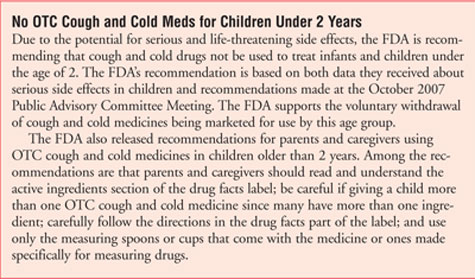US Pharm. 2008;33(2):70.
Potential Drug Mixup
Warning
Concerned about
possible confusion between the drugs edetate diso!=dium and edetate calcium
disodium, the FDA issued a public health advisory. According to the agency,
child and adult deaths have occurred when edetate disodium was mistakenly
given to patients instead of edetate calcium diso!=dium (calcium disodium
versenate). Fatalities have also occurred when edetate disodium was used for
unapproved chelation therapies and other uses not approved by the FDA.
These drugs, both of which are
often referred to as EDTA, are easily mistaken for each other. Edetate
disodium was approved as an emergency treatment for hypercalcemia or certain
heart rhythm problems, and edetate calcium di!=sodium was approved to treat
severe lead poisoning. Because of the potential for these medication
errors to be fatal, the CDC recommended that hospitals determine whether or
not they need to keep edetate disodium stocked in their pharmacies. The FDA
also warns against using the abbreviation EDTA to avoid possible confusion
between the two drugs.

Bisphosphonates and
Musculoskeletal Pain
FDA is warning of
possible severe and sometimes incapacitating bone, joint, and/or
musculo!=skeletal pain in patients taking bisphosphonates. Severe
musculoskeletal pain is included in all bisphosphonate prescribing
information, but this may be overlooked by health care professionals. This
could delay diagnosis, prolonging pain and/or impairment, and require
analgesics.
Severe musculoskeletal pain
may occur within days, months, or years after starting a bisphosphonate.
Some patients report complete symptom relief after discontinuing the
bisphosphonate; others have reported slow or incomplete resolution. This pain
is in contrast to the acute phase response associated with initial
administration of intravenous bisphosphonates and initial exposure to
once-weekly or once-monthly oral bisphosphonates. The symptoms related to the
acute phase response tend to resolve within several days with continued drug
use.
The FDA says that health care
professionals should consider stopping or interrupting the drug in patients
presenting with severe musculoskeletal pain if they believe bisphosphonate use
might be responsible for these symptoms.
Concerns over Compounded
Menopause Drugs
The FDA warned
seven pharmacy operations that their claims concerning the safety and
effectiveness of their so-called bio-identical hormone replacement therapy
, or BHRT, products are scientifically unsupported and are considered
false and misleading.
According to the agency, the
pharmacy operations wrongly say that their drugs, which contain such hormones
as estrogen, progester!=one, and estriol, are superior to FDA-approved
menopausal hormone therapy drugs and prevent or treat Alzheimer's disease,
stroke, some cancers, and other serious diseases. Estriol is not a component
of an FDA-approved drug and has not been proven safe and effective for any
use.
The FDA's warning does not
apply to pharmacists who practice traditional compounding. All patients who
use compounded hormone therapy drugs, the agency says, should discuss
menopausal hormone therapy options with their health care provider.
To comment on this article,
contact editor@uspharmacist.com.






